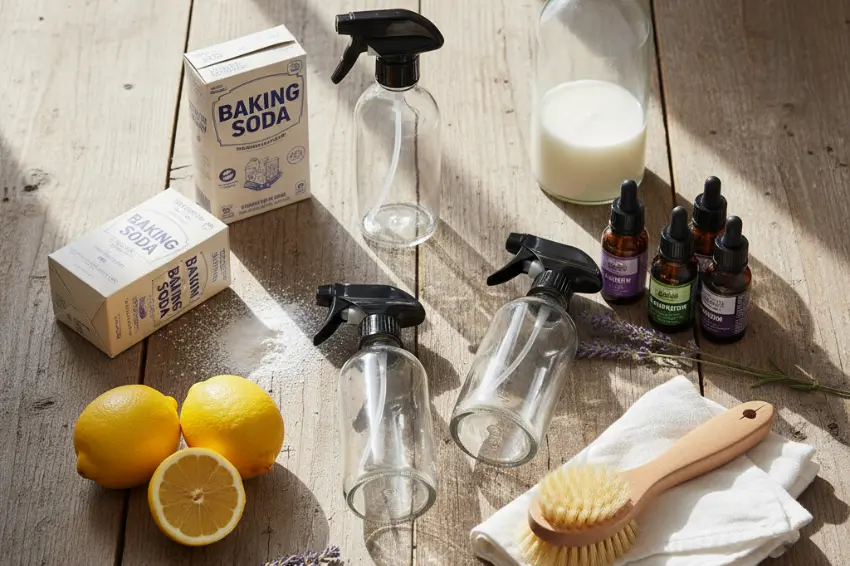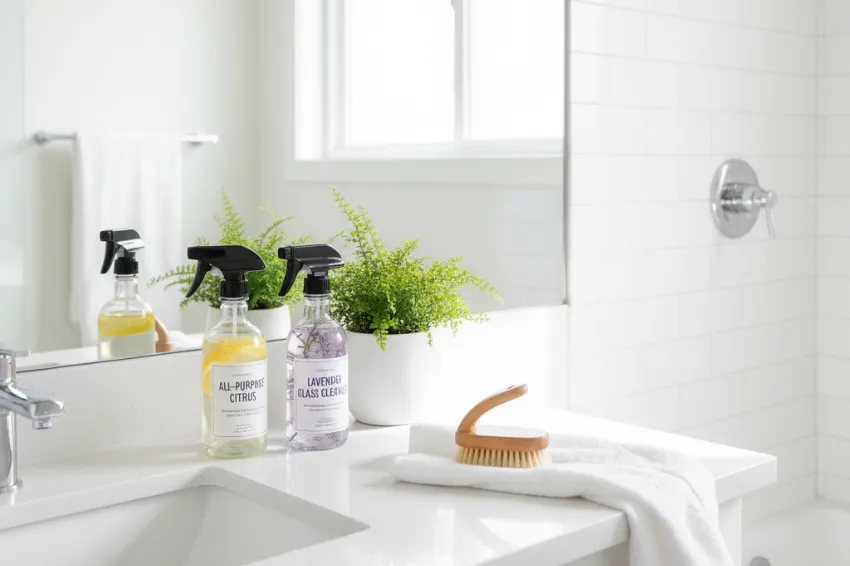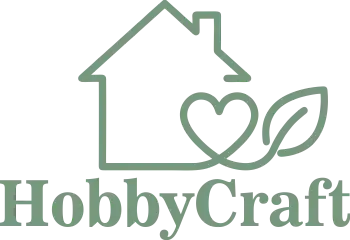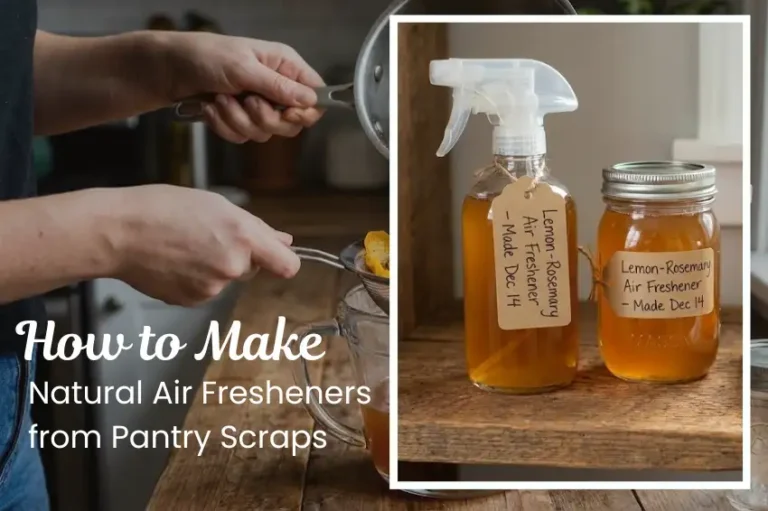Create Homemade DIY Cleaning Supplies: Your Complete Guide to Natural, Eco-Friendly Cleaners
Homemade DIY Cleaning. Ever find yourself in the cleaning aisle, squinting at a bottle full of ingredients you can’t pronounce? It’s a common frustration, feeling like you need a chemistry degree just to keep your bathroom clean. The good news is that creating your own homemade cleaning supplies isn’t just a trendy throwback—it’s a practical, wallet-friendly approach that puts you back in control of what touches your family’s health.
The truth is, our grandparents were onto something. They kept their homes sparkling with vinegar, baking soda, and a bit of elbow grease. Making DIY cleaning products isn’t about sacrificing effectiveness; it’s about discovering you never needed all those harsh chemicals in the first place.
Whether you’re motivated by environmental concerns or budget constraints, this guide will walk you through everything you need to create your own natural cleaning recipes.
Why Switch to Homemade Cleaning Supplies?
Making the switch to chemical-free cleaners offers benefits that extend far beyond your immediate home.
- Health Benefits: Commercial products often contain volatile organic compounds (VOCs) and synthetic fragrances that can trigger allergies and skin sensitivities. With non-toxic cleaning supplies, you know exactly what’s in each bottle.
- Your Wallet Will Thank You: You can make an effective all-purpose cleaner for pennies. A gallon of white vinegar costs a few dollars and can make dozens of cleaning solutions, compared to $5-8 per bottle of commercial cleaner.
- Environmental Impact: Every plastic bottle we don’t buy is one less piece of waste in our landfills. By making eco-friendly cleaning products, you’re reducing packaging waste and eliminating harmful chemical runoff into water systems.

Essential Ingredients for Your DIY Cleaning Arsenal
Think of these as your cleaning toolkit foundation. Once you stock these basics, you’ll be ready for any cleaning challenge.
- White Vinegar: The acidic wonder. It cuts through grease, dissolves mineral deposits, and neutralizes odors. The smell dissipates quickly as it dries.
- Baking Soda: The gentle scrubber. This mild alkaline powder works as a gentle abrasive and deodorizer, perfect for scrubbing without scratching.
- Castile Soap: The plant-based powerhouse (like Dr. Bronner’s). It provides cleaning power without synthetic detergents and is biodegradable.
- Essential Oils: More than just fragrance. Tea tree oil is a natural disinfectant, while lemon oil cuts through grease.
- Supporting Players: Washing Soda (for heavy-duty cleaning), Hydrogen Peroxide (natural bleaching agent), and Lemon Juice (cuts grease).
5 Must-Have Recipes for Homemade Cleaning Supplies
Here are the core recipes to get you started. These workhorses can handle most of your daily cleaning tasks.
1. Homemade All-Purpose Cleaner
This is your everyday staple, perfect for countertops, appliances, and most household surfaces.
- 1 cup white vinegar
- 1 cup water
- 10-15 drops essential oil (lemon, lavender, or tea tree)
- Mix in a spray bottle and shake before each use.
2. DIY Bathroom Cleaner (Tub and Tile Spray)
This formula tackles soap scum, mildew, and water spots.
- 1 cup white vinegar
- 1/2 cup hydrogen peroxide
- 1 tablespoon dish soap
- 10 drops peppermint oil
- Combine in a spray bottle. The hydrogen peroxide provides extra whitening power.
3. Homemade Glass Cleaner
Say goodbye to streaky windows and mirrors.
- 2 cups water
- 2 tablespoons white vinegar
- 2 tablespoons rubbing alcohol
- The alcohol helps everything evaporate quickly and streak-free.
4. Baking Soda Soft Scrub Paste
This gentle abrasive works wonders on sinks, tubs, and stovetops without scratching.
- Mix baking soda with just enough water to form a thick paste.
- For extra power, add a few drops of castile soap.
5. Olive Oil Furniture Polish
Give your wood furniture the love it deserves with this nourishing polish.
- 1/4 cup olive oil
- 1/4 cup white vinegar
- 10 drops lemon essential oil
- Shake well. Apply a small amount to a soft cloth and buff into wood surfaces.
Pro-Tip: These five recipes are just the beginning. For a complete collection, including laundry detergent, stain removers, and specialty cleaners, check out our guide to 15+ Natural DIY Cleaning Recipes for Every Room & Surface.

Do Natural Cleaners Actually Kill Germs?
Yes—when you use the right ingredients properly.
- White Vinegar: Studies show it can reduce bacteria by up to 90% on certain surfaces. It’s most effective against E. coli and Salmonella.
- Hydrogen Peroxide: At 3% concentration, this effectively kills bacteria, viruses, and fungi.
- Tea Tree & Thyme Oil: Research shows these oils have powerful antimicrobial properties.
How to Maximize Disinfecting Power: The secret isn’t just what you use—it’s how you use it:
- Clean First: Remove visible dirt before disinfecting.
- Allow Contact Time: Let solutions sit on surfaces for 5-10 minutes before wiping.
- Target High-Touch Surfaces: Doorknobs, light switches, and countertops need regular attention.
Storage and Safety Guidelines
Making cleaners is one thing; storing them safely is another.
- Container Choices: Glass spray bottles are best, as they don’t react with acids like vinegar. Dark amber or cobalt blue glass protects essential oils and hydrogen peroxide from light.
- Labeling Is Non-Negotiable: Always label your cleaners with the contents and the date made.
- What Never to Mix:
- Vinegar and hydrogen peroxide (in the same bottle)
- Vinegar and castile soap (creates ineffective gunk)
- Any combination with bleach (creates toxic fumes)
- Surface Compatibility: Avoid using vinegar on natural stone (marble, granite) or hardwood floors.
Learn More: Have questions about pet safety, troubleshooting, or what to do if your cleaner streaks? Read our Ultimate Safety Guide to DIY Cleaners (Pets, Kids & Surfaces) for detailed answers.
Your Journey to a Cleaner, Greener Home
Making your own homemade cleaning supplies is not an all-or-nothing proposition. Every commercial cleaner you replace with a DIY alternative is a win for your health, your wallet, and the environment.
Remember, this isn’t about perfection. The goal is to remove toxins from your home while simplifying your routine. Start where you are. Use what you have. Grab that spray bottle, dust off your baking soda, and start simple. Your sparkling clean, naturally fresh home awaits.


